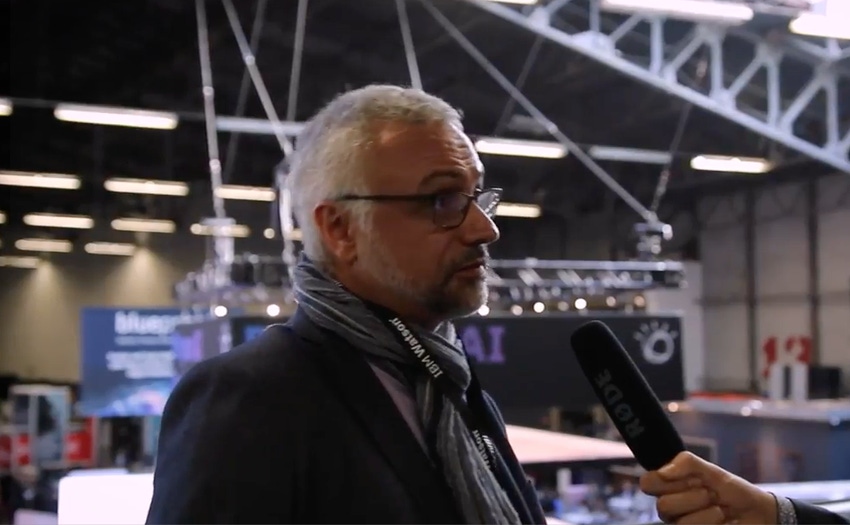Experts in AI: Learning from the gaming industry
Experts in AI: Learning from the gaming industry
October 10, 2018

SAN FRANCISCO - AI has played an integral role in modern video game development. As one of the key areas of deployment and experimentation, artificial intelligence continues to define the gaming experience today.
To better understand what enterprises can learn from the gaming industry about delivering a better customer experience, we caught up with Yves Jacquier, Executive Director of Production Studio Services with Ubisoft Montreal, at The AI Summit San Francisco.
FULL INTERVIEW
Q: I’m here with Yves Jacquier, Executive Director of Product Services And Studio at Ubisoft. Yves, how’s it going today?
Y: It’s been very exciting. Many other interesting presentations, from many different kinds of businesses, all talking about AI and sharing their challenges. It’s pretty interesting to see that in many other areas, not just in the gaming industry, but in many different areas they share the same concern about AI, about explainability, about technicalities of AI, and how we can make greater services and greater games. So, extremely interesting.
Q: I understand you’ve just come off stage from your keynote. Can you just tell me a little bit about what you’ve been talking about onstage - what were you really trying to communicate to the audience?
Y: Sure. So in a nutshell, both AI and video games are 70 years old and they have had a long relationship - each building on the strength of the other. But there’s been something really new for the last five or ten years both in the video game industry and also in the AI development. We’ve reached a point where we can do things really differently and it’s a game changer - no pun intended - in three different ways.
First, it changes the way we’re making games. It’s more at an assistance level. We’re able to create greater assets, simply because it accelerates many things we’re doing. WE’re creating greater characters and better animations with tools that are more and more automated. Second, it will help us to add more and more variety into our open worlds - a greater variety of people, vehicles, and richer behaviours. In other words - better products. But what we’ve discovered that is extremely interesting is that while doing that it will change other types of real life industries and other types of real life problems. If you think about autonomous vehicles as an example, if you are able to test, audit, or develop, a vehicle car into a game, maybe we can do that for a real life vehicle and test scenarios you wouldn’t be able to do in real life that involves pedestrians, weather conditions, and things like that.
Q: On the point of building richer experiences for everyone, obviously a lot of the challenge in open world games may be that a player is moving through and you want to create variety like you’re saying. How do you think other companies can learn from that experience in terms of building a more varied and interesting experience for, say, customers or users?
Y: Thing is that by creating more and more diverse experiences into the game, with each interaction conveying more emotions, with more variety into our characters and their behaviours, we are asking many questions. We’re asking questions about society, or we are facing historical questions and all of those are questions that experts from other domains are also working on. By working together, not only do we improve our games, but we have to improve their domains by solving different kinds of problems and answering different kinds of questions. How do you cope with autonomous cars that have been built in California but need to work in Montreal with winter conditions? That’s the kind of thing that we can build in a video game.
Q: Definitely. So out of Ubisoft, what do you think is one of the most relevant developments in terms of AI in the last few years?
Y: I think it wouldn’t be a development, but its more the fact that many many people are more aware that its important to have explainable AI, dependable AI, and to address many ethical questions first. In other words, that AI is not any more a question of specialist and experts of the technical domain, but we should put the human and the human question and the human condition first to answer all those questions. That is the thing that is really new this year.
Q: On the point of the human question, what is it for you personally that has drawn you into this field, what makes you passionate about it?
Y: We’re making games. It has to be fun. You have to relate to these games. It has to convey emotion. It has to feel real. So all of that requires not to think about the technicality but the real emotions that the medium is able to convey. If you see the technical aspects, we’ve failed, actually.
Q: Exactly. Yves, thanks for talking to me today, it’s been great. Nice to meet you.
Y: Thank you.
About the Author(s)
You May Also Like


.jpg?width=700&auto=webp&quality=80&disable=upscale)
.jpg?width=700&auto=webp&quality=80&disable=upscale)
.jpg?width=700&auto=webp&quality=80&disable=upscale)
.jpg?width=300&auto=webp&quality=80&disable=upscale)
.jpg?width=300&auto=webp&quality=80&disable=upscale)
.jpg?width=300&auto=webp&quality=80&disable=upscale)
.jpg?width=300&auto=webp&quality=80&disable=upscale)
.jpg?width=300&auto=webp&quality=80&disable=upscale)